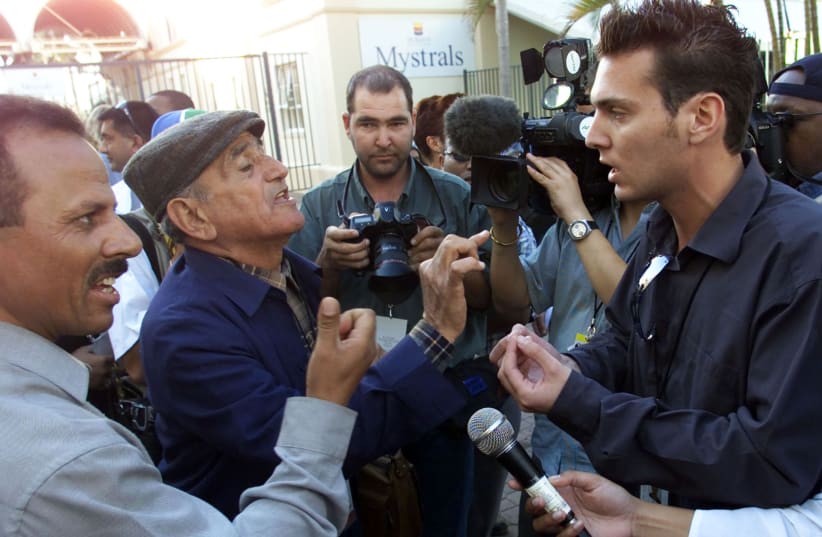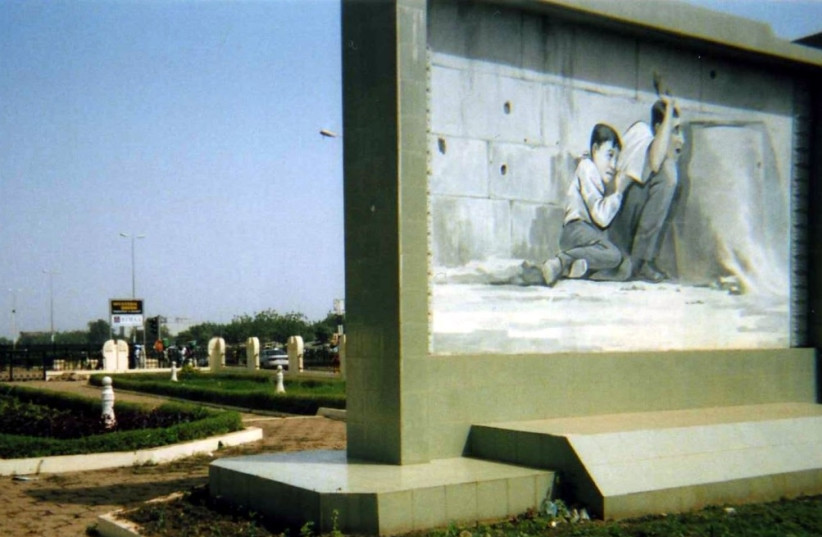On September 21, the UN launched its annual opening of the General Assembly in New York. This high-level meeting also marks the 20th anniversary of the Durban Conference, which ended on September 8, 2001. Israel, the US, France and at least 17 other countries have already announced that they will be boycotting this event, which has been dubbed Durban IV.
The political and propaganda campaign against the conference is being led by Gilad Erdan, Israel ambassador to the US and UN. Jewish organizations, among them B’nai B’rith International, have joined the campaign, and will be holding a series of online discussions featuring personalities such as Natan Sharansky, philosopher Bernard Henri Levy, and former US ambassador to the UN John Bolton.
The infamous Durban Conference was formulated following the 1997 UN resolution concerning the convening of the World Conference against Racism, Racial Discrimination and Xenophobia. Throughout the year 2000, four regional preparatory conferences were held for countries in Europe, the Americas, Africa and Asia.
Israel was blocked from participating in the Asia regional conference in Tehran that was being held in conjunction with the Organization of Muslim Countries. A sharply worded anti-Israel document that was drafted included the following sections: The State of Israel is an apartheid state, and therefore boycotts must be imposed on it, and countries that support Israel must be condemned; Israel is an occupied state; Occupation is a crime against humanity and endangers world peace; Zionism is Racism; The State of Israel is violating the human rights of the Palestinians; Israel is committing genocide, war crimes and crimes against humanity, and therefore an armed struggle must be waged against it; There is no singular Holocaust, but instead a number of them, including black slavery in Africa and the Holocaust that Israel is committing against the Palestinians.
When I reached Durban as a Maariv correspondent, I soon discovered that the spirit of the decisions that had been taken in Tehran was setting the tone for the current conference. There were three UN conferences taking place concomitantly in the city: the official diplomatic conference, a youth summit, and a large forum of NGOs, which received observer status as a result of the UN resolution. All in all, there were 7,000 representatives from over 1,500 organizations from around the world.
These organizations succeeded in taking control of the conference’s agenda, and turning it into an anti-Israel and antisemitic festival of hate against Israel, exclaimed Prof. Irwin Cotler, the former Canadian justice minister.
FROM THE first day in Durban, discussions at the conference, as well as talk on the street, were full of antisemitic and anti-Israel rhetoric. Because of this, when I went outside to interview some of the 15,000 demonstrators, I made sure to hide my press tag, which had the word “Israel” written on it clearly in English.
The atmosphere reminded me of intense protests in the territories during the intifada. Thousands of South Africans were marching in the streets, many of them wearing T-shirts with a picture of Muhammad Dura, a boy who was shot and killed in the Gaza Strip at the beginning of the Second Intifada and became a symbol of the struggle against the Israeli occupation.
Others were wearing T-shirts with the words, “Israel is an apartheid state,” next to the conference’s official logo. Lots of protesters were holding placards with anti-Israel and antisemitic slogans written on them, and some were even handing out copies of the Protocols of the Elders of Zion. One of the placards had a picture of Adolf Hitler, with the words underneath: “What would have happened if Hitler had won? Israel would never have been created, and Palestinian blood would never have been spilled.”
Leading the demonstration were protesters donning keffiyehs on their heads and carrying a stretcher with a “Palestinian baby” doll on it that was wrapped in a bloodstained shroud. The World Union of Jewish Students erected a booth at the site, and representatives who handed out informational flyers with information about Israel were attacked by protesters chanting, “With blood and with fire we will redeem Palestine.”
At the same time, at the NGO conference that was being held in one of the city’s largest halls, outrageous anti-Israel decisions were being taken. Representatives of Jewish organizations vacated the hall in protest, and as they did so, representatives of Muslim and Arab countries called after them, “Get out of here!” and “Free Palestine!”
The policy paper that was formulated during that event was titled, “A policy of complete and total isolation of Israel as an apartheid state,” and called for the “imposition of sanctions, a comprehensive embargo, and complete severance of all diplomatic, economic, social ties, aid and military cooperation between all countries and Israel.” The document also called for “the condemnation of those countries that are helping the ‘Israeli apartheid state’ to commit racist crimes against humanity, including ethnic cleansing and genocide.”
Adding to the despondence that Israeli representatives and journalists felt at the conference, came the news from Cape Town that three masked men wearing keffiyehs had attacked a Jewish doctor, injuring him seriously as they screamed antisemitic epithets.
During the plenum, our group of Israeli journalists experienced another unsettling incident when the head of the Israeli delegation, Baruch Yedid, began his presentation. Egyptian foreign minister Ahmad Maher berated the Israeli delegation, saying, “This man will teach us what morality is? Israel bombs and kills civilians every single day,” as he stormed out of the assembly hall. When I asked him about a series of five terrorist attacks that had recently taken place in Jerusalem, he answered angrily, “What does it matter if it’s five or 10 – you are using F-15s to kill civilians.”
What was particularly frustrating was the presence of a group of extremist anti-Zionist haredim who had joined the anti-Israel demonstration and who were vehemently yelling out anti-Zionist slogans.
Toward the end of the conference, the US delegation decided to leave, with the Israeli delegation following suit. This action took place after it became clear that a document accusing Israel of genocide, ethnic cleansing and war crimes was about to be put to a vote. Efforts made by American, Israeli and a few European diplomats resulted in the formulation of less harsh wording, in which the UN expressed its “concern over the plight of the Palestinian people under foreign occupation.” However, during the conference, which continued for nine days, Israel was criticized day after day.
Three days after the conference ended, the September 11 attacks took place in New York and Washington, and discussions of the Durban Conference were put on the back burner. But not for long. The “Durban Strategy” turned out to be the opening shot of what was to become the international anti-Israel BDS movement, whose aim was to delegitimize the very existence of the State of Israel.
Since then, this anti-Israel campaign has continued unabated. One of its main goals has been to strong-arm Israel into appearing before the International Court of Justice at The Hague on trial for war crimes.
Israel’s geopolitical situation slightly improved recently, partially due to the signing of the Abraham Accords, but the BDS campaign that began at the Durban Conference has not let up for one moment. Let us hope that the Bennett-Lapid government will find a way to improve our situation. ■
Translated by Hannah Hochner.

